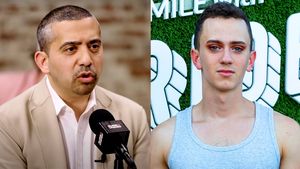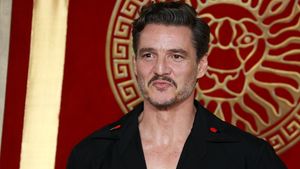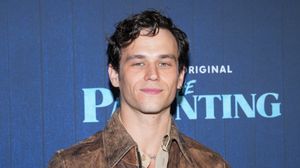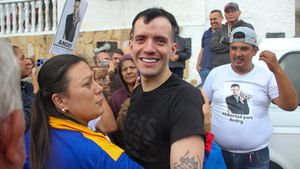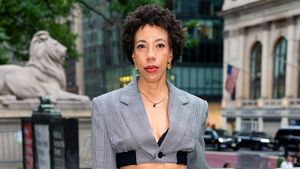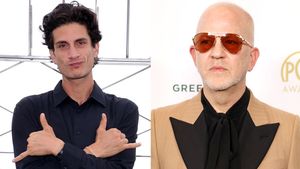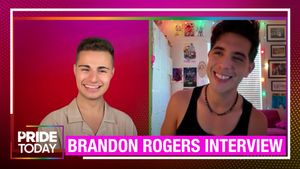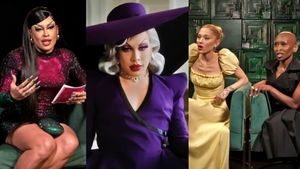JOSEPH BEAM: How instrumental were you in getting Jesse Jackson to embrace lesbians and gays in the Rainbow Coalition of his 1984 presidential campaign?
BAYARD RUSTIN: Well I played a very, very limited role in the Jesse Jackson campaign. I do not look upon myself as one who supports this or that politician to get in office, but as a person who says if and when you get into office you must do these things. So that my only real contribution to the Jesse Jackson campaign was that when he went to talk with the trade union leader of the AFL-CIO, Mr. Lane Kirkland, I accompanied him largely because I felt it important that if Jesse were going to run that he hear from trade unionists as to what their basic program was and why.
BEAM: Over the years, as an openly gay black activist, what kind of treatment has been afforded you by the black press?
RUSTIN: Well, that's an interesting question. The first real interest that the black press showed in me as a gay was soon after I made my first trip to India in 1946, and worked with the Gandhi movement. Several pictures were shown in the American press with me sitting with Mr. Nehru. Soon afterwards, Jet magazine had a big throw under the title, "Is Homosexuality Becoming Respectable?" One of the things they concentrated on was the fact that I had been meeting with Nehru. That was a first. Following that I would say except when I have been attacked the black community has seldom seen fit to even mention the gay aspect. And since when I have been attacked I have usually been defended by the black community, I would say that the black newspapers have played it very straight. If I was attacked they simply published that I was attacked, if I was defended they simply said I had been defended. But I don't think they have taken any effort at maligning me or maligning gays or making any effort to give to people anything that wasn't news.
BEAM: Did you ever attempt to add sexual orientation to the agenda of the civil rights movement?
RUSTIN: No I didn't, and because I believe there are certain types of movements which cannot be married, but rather to go about it the other way. To say to the gay rights movement, if you want to win you must join us as individuals into the civil rights movement and to say to the civil rights people if you really want to get freedom for blacks don't think you can do it by getting freedom for blacks alone. You have to join every other movement for the freedom of people. Therefore join the movement as individuals against anti-Semitism, join the movements for the rights of Hispanics, the rights of women, the rights of gays. In other words, I think that each movement has to stand on its own feet because it has a particular agenda, but it can ask other people. Now there's another reason for that. And that is if people do not organize in the name of their interest, the world will not take them as being serious. And that is the chief reason that every person who is gay should join some gay organization. Because he must prove to the world that he cares about his own freedom. People will never fight for your freedom if you have not given evidence that you are prepared to fight for it yourself. Incidentally, that's the reason that every gay who is in the closet is ultimately a threat to the freedom of gays. I don't want to seem intolerant to them and I think we have to say that to them with a great deal of affection, but remaining in the closet is the other side of the prejudice against gays. Because until you challenge it, you are not playing an active role in fighting it.
BEAM: In 1958, after having worked closely with Dr. King for some time, how did it feel when he failed to offer you the directorship of the Southern Christian Leadership Conference (SCLC), an organization whose structure was principally drafted by you?
RUSTIN: To say I was not disappointed would be a lie. To say I was in any way disturbed other than somewhat disappointed would also be untrue. Back then is not now. There was not a gay liberation movement; there was tremendous prejudice to gays and I think that Dr. King had every right to raise questions as to whether prejudice to gays would affect what he looked upon as a very important movement at the moment. I think the likelihood is, had he made me the executive director, it would have created some problems for him, so he declined. But let me say in Dr. King's defense that a few years later, when the question emerged in 1963, he stood behind me 100 percent and my right to continue organizing the March on Washington for Jobs and Freedom. I think that was, in part, because times were changing, but also because Dr. King felt unhappy with what he had to do earlier.
BEAM: Do you think that black people generally know that a black gay man was the deputy director of that March?
RUSTIN: Everybody finally knew it because when Strom Thurmond stood in the United States Senate and talked for more than three-quarters of an hour, it appeared on the front pages of all the major papers in the country including the Wall Street Journal, the New York Times, and the Washington Post. So those people who read the papers knew.
BEAM: What remarks do you have for other black gay activists who hope to follow in your footsteps?
RUSTIN: Well, I think the most important thing I have to say is that they should try to build coalitions of people for the elimination of all injustice. Because if we want to do away with the injustice to gays it will not be done because we get rid of the injustice to gays. It will be done because we are forwarding the effort for the elimination of injustice to all. And we will win the rights for gays, or blacks, or Hispanics, or women within the context of whether we are fighting for all. A good example of this is the present Reagan administration. If anyone thinks they're going to get anything out of the Reagan administration for any particular group, they're wrong! You have to all combine and fight a head-on battle--in the name of justice and equality--and even that's going to be difficult. But if we let ourselves get separated so that we're working for gays or school children or the aged, we're in trouble.
From Time on Two Crosess: The Collected Writings of Bayard Rustin edited by Don Weise. Copyright 2014. Excerpted by permission of Cleis Press.


